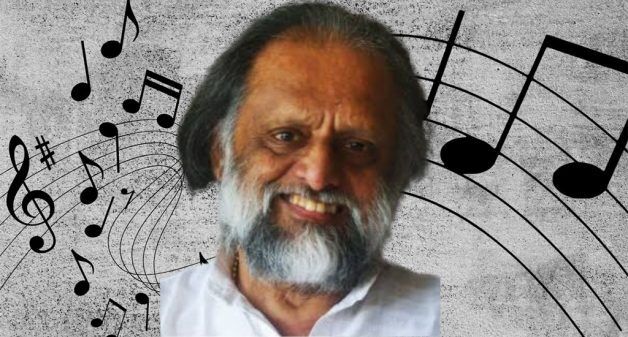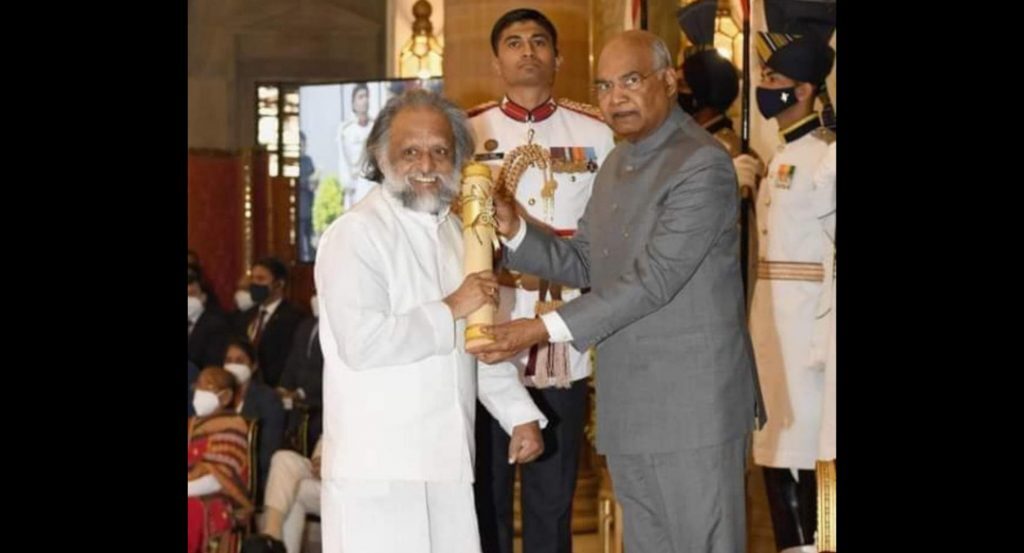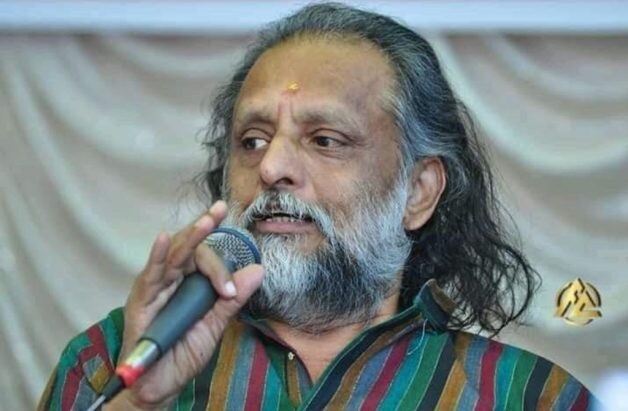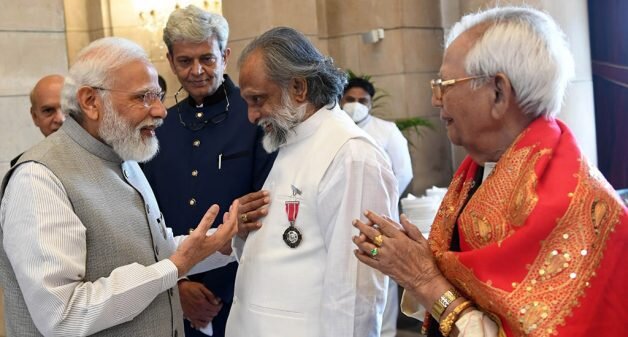
Award takes Kaithapram’s therapeutic music to a higher note
Having experienced the healing powers of music, Kaithapram Damodaran Namboothiri, a Padma Shri awardee, believes music therapy can cure illnesses and disabilities.

Having experienced the healing powers of music, Kaithapram Damodaran Namboothiri, a Padma Shri awardee, believes music therapy can cure illnesses and disabilities.
“Music is an elixir. It rejuvenates, it heals,” declared Kaithapram Damodaran Namboothiri.
He should know. Not only was his father a musician who would ask his son to sing to him whenever he fell ill, not only did he grow up to have a career in music too, but he also experienced its healing power himself.
In 2012 a severe cerebral haemorrhage left him paralysed. He underwent advanced treatments for many months.
“I listen to tambourine or Om music all the time. I hold on to music tightly. It reduces my pain and my despair,” he said. “Music helped me gain balance. My mobility has improved a lot because of music.”
So in 2021 it was with double pride that the Carnatic musician walked on stage to receive the Padma Shri award.
Not only was he thrilled to receive the award recognising his musical contribution. But he was also grateful to be able to walk.
The 71-year-old lyricist, composer, poet, singer, script writer, actor and director – popularly known as Kaithapram – has credits in over 450 films. But the one closest to his heart is music therapist – helping those with health issues and disabilities.
“Because of the Padma Shri, my music and its therapeutic power have been honoured,” said Kaithapram with pride.

After starting a music school Swathi Thirunal Kalakendram in 1988, Kaithapram started the Music Therapy Foundation in Kozhikode – with branches in other districts now.
He popularised music therapy through his foundation’s therapy centre in Thiruvannur – believed to be the only centre of its kind in India. He suggests a three-week session of musical therapy that includes yoga, ayurveda and natural food as well.
He suggests first starting with a trained therapist for a short time and then patients practicing on their own, seeking guidance when needed.
“In serious cases, like acute autism, it should be for a long period for desired results,” he said. “For best results, I suggest enjoying a music-filled lifestyle.”
Music therapy can help people with a range of emotional disorders and mental illness and can impact the way people live their lives, according to British Association for Music Therapy.
The simplest form of music therapy is listening to music. Singing and playing instruments is the next step.
Mehroof Raj T.P. is a singer and physician, who often suggests music therapy as an accompaniment to a scientific treatment.
“Music alone will not cure any disease. But, along with scientifically proven treatment, music can do wonders. It’s very helpful in psychological treatment,” said Raj.
He said music can even be used as a pain reliever, noting some hospitals use music in their maternal labour rooms to create a soothing atmosphere.
“When we feel ill or experience severe pain, it leads to mental and emotional trauma. Music soothes us. It brings calm,” said Raj.
Kaithapram believes ragas rendered in a melodious voice will increase oxygen to the blood.
“We’ve tried music therapy in many hospitals across Kerala. The hospital authorities have documented the sessions to evaluate its benefits. All sessions have showed positive results, including in Kozhikode mental hospital,” he said.

Based on requests from hospitals, Kaithapram’s team chooses appropriate ragas as per the ailment a patient might be suffering from.
“Appropriate ragas can do wonders. Kalyani, Mohana, Sree Ragam have special soothing effects,” he said.
Music can be both stimulating and relaxing.
Kaithapram has helped people get rid of insomnia through music, as well as bringing a certain peace to those with autism.
“Music is effective for psychiatric disorders, sensory impairments, developmental and learning disabilities and communication disorders. And music therapy is applicable for all ages,” he said.
The Remanandans sought Kaithapram’s music therapy for their daughter Keerthana, who is intellectually challenged. Getting Keerthana to even carry out her daily routine was difficult.
“We can vouch for the significant change he promised,” recalled Manjula Remanandan. “I still remember those days when I had to force her into the bathroom.”
Noticing gradual changes, Manjula Remanandan made sure that her daughter attended music classes and practiced without fail. During the lockdown, the classes continued online.

“After three years, she’s better now. She used to be restless and lacked concentration. Not anymore,” said the mother. “Now she can follow our advice and her daily routines with nominal support from me.”
The couple has started a social media channel to showcase Keerthana’s music and the power of music therapy.
In 2008 Kaithapram and his team performed at the Kozhikode Government Mental Hospital, for which he needed permission from a judge, as mental hospitals require a court order for any performance on their premises.
“When Kaithapram and his team sang it created a different mood. It was magical. Some patients sat listening silently, some clapped and some wept,” recollected a former official of the hospital who wished to remain anonymous.

The authorities noted a positive change after the 24-week free therapy and the high court judge, Thottathil Radhakrishnan – who gave the permission – recorded the impact reported by the hospital and suggested continuing the therapy.
Since then Kaithapram and his team have conducted therapy performances and treatments at many government and private hospitals, including at the Cochin General Hospital as part of Cochin Biennale’s ‘Art as medicine’ session.
The team – which is now conducting only online classes – is ready to train singers to be music therapists, to help people during and after the pandemic.
Kaithapram has asked the state government to allocate funds for music therapy to reduce post-pandemic stress.
“If the government takes it up, thousands of artists who lost their livelihood due to the pandemic can use their skill for society’s wellbeing,” he said. “Music gave me fame, happiness, health, wealth and much more. So I’m ready to spread its positivity.”
Chithra Ajith is a journalist based in Kozkikode, Kerala.